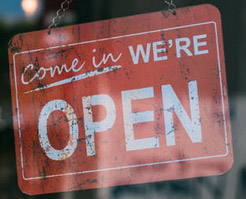All about champagne
- What is champagne?
- The Champagne region
- How is champagne produced?
- Uncorking and serving Champagne
- Champagne storage
- The most popular champagne cocktails
Information & advice
Our customer service team is available for you on Monday through Friday from 8:30 am to 5:00 pm and on Saturday from 8:30 am to 1:00 pm.
020-408 48 51
Champagne storage

Champagne can be stored in various ways, and its shelf life depends on various factors. Here, we'll tell you how, where, and for how long you can store champagne.
Champagne Shelf Life
There is no expiration date on a bottle of champagne, which often leads to questions about its shelf life. Several factors determine how long champagne lasts. On this page, we explain the factors influencing the shelf life of champagne, how to store champagne optimally, and how to recognize champagne that has gone bad.
Before delving deeper, here's a general guideline for champagne shelf life:
- Non-vintage champagne: max. 9 months
- Prestige champagne: 10-15 years
- Vintage champagne: optimal is 1 year but can last up to 5 years
- Opened champagne: 3-5 days
Factors Affecting Champagne Shelf Life
The following factors affect the shelf life of champagne:
- Grape variety composition
- Quality of grapes
- Bottle size
- Quality of the cork
Grape variety composition refers to the percentages of grape varieties used. Champagnes containing Pinot Meunier have a shorter shelf life. If your champagne has about 35% Pinot Meunier, it will last approximately 9 months. Pinot Meunier contributes to the fruity notes in champagne. As it ripens quickly, there's a likelihood that these fruity notes will be too dominant. Vintage champagnes exclude Pinot Meunier grapes for this reason and are often made only from Chardonnay and Pinot Noir. Blanc de Blancs champagnes also have a longer shelf life for the same reason.
Grapes from a good harvest year, originating from a grand cru or premier cru vineyard, are inherently of high quality. This increases their aging potential, making them ideal for prestige and vintage champagnes, excellent for aging.
Piccolo champagnes are intended for immediate consumption, so do not store them for too long! Large bottles of champagne have been in contact with oxygen during assembly, so avoid storing these bottles for an extended period. Essentially, Magnum champagne is the perfect bottle size.
Corks play a crucial role in maintaining quality. No carbonation should escape, and the bubbles should remain at their best. The cork plays a determining role in this. More expensive champagnes have higher-quality corks. A good-quality cork seals the bottle better and shrinks less.

How must Champagne be stored?
You're about to enjoy a delightful bottle of champagne, but you won't finish it all at once. What's the best way to store the champagne bottle? Champagne is sensitive to temperature fluctuations and light.
When storing your champagne, consider the following conditions:
- Store the champagne in a dark and draft-free place.
- Keep the champagne at a temperature of 7-12°C.
- Place the bottle horizontally.
- Minimize movement of the bottle.
- Consider using a vacuum champagne stopper.
Inspect, smell, and taste to determine if the champagne is still good. If the champagne has few bubbles left and tastes musty or slightly sour, there's a good chance it's no longer good. Don't discard it immediately; it can still be used for cooking.
Don't store champagne for too long, and choose a special moment to uncork it!




